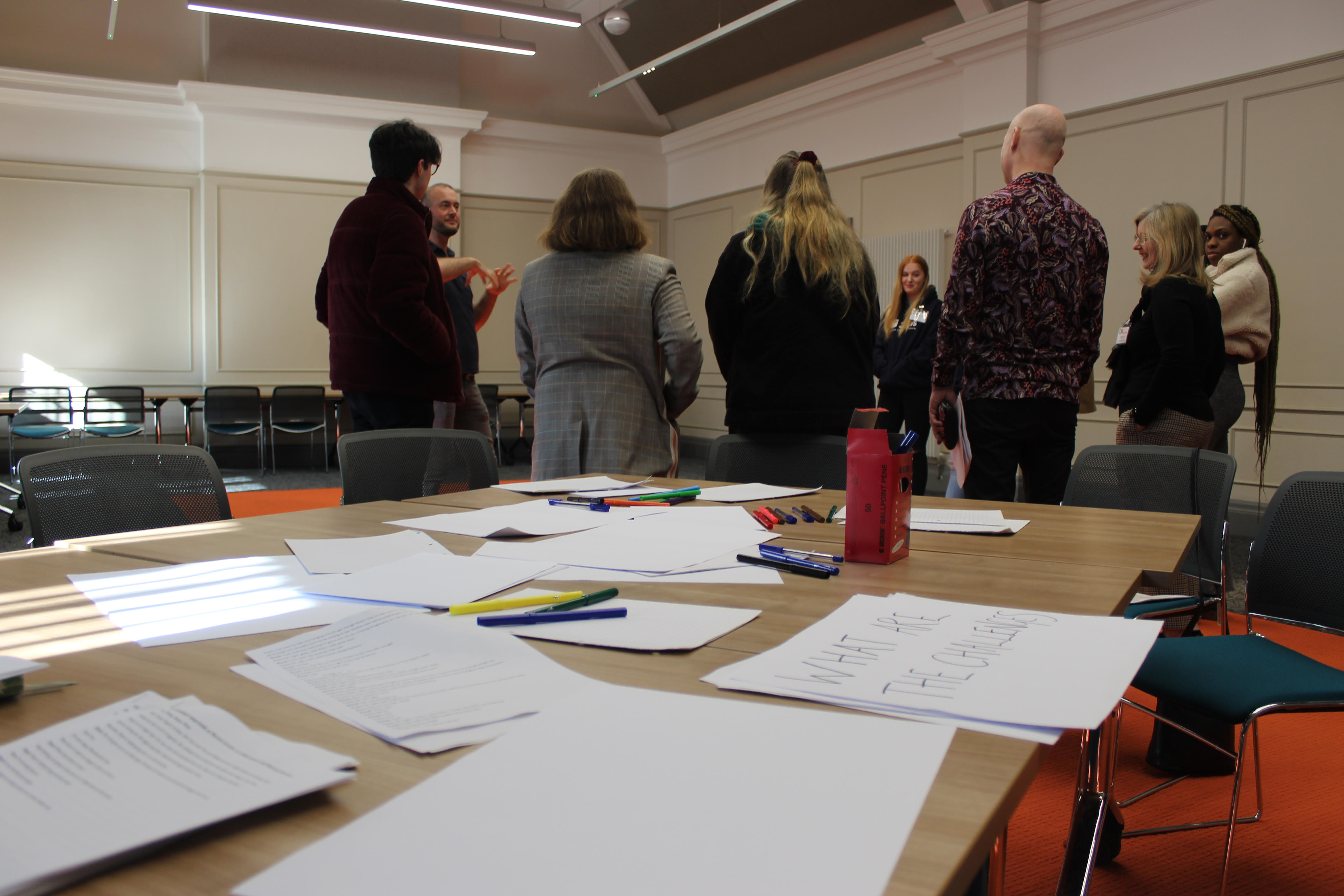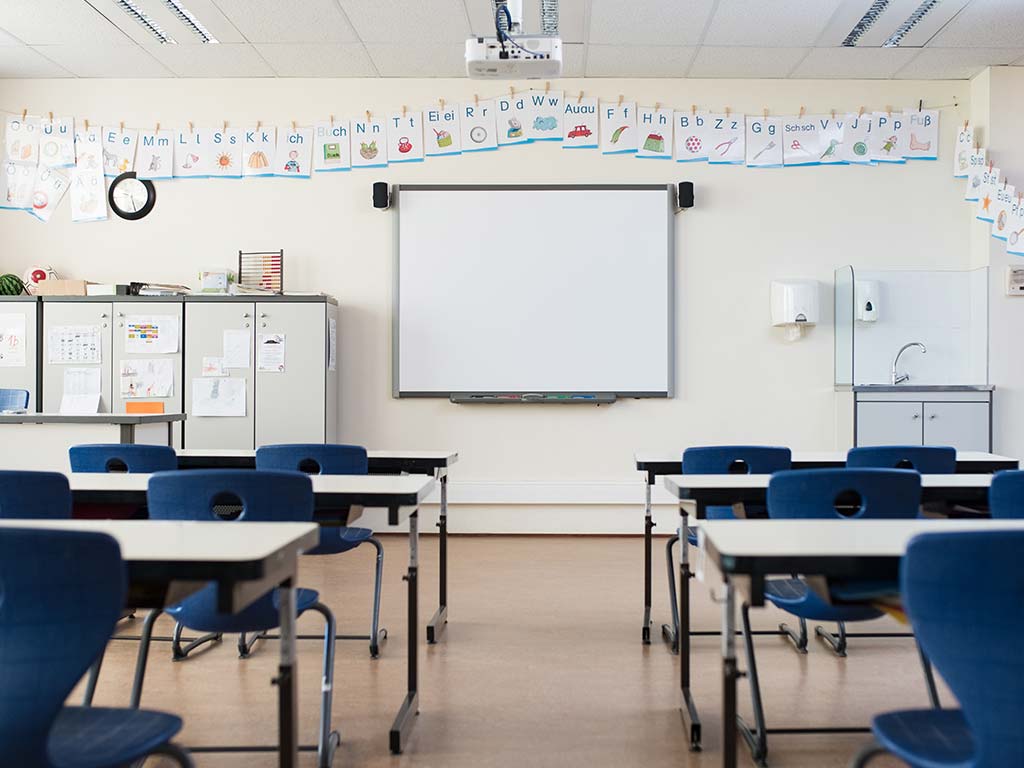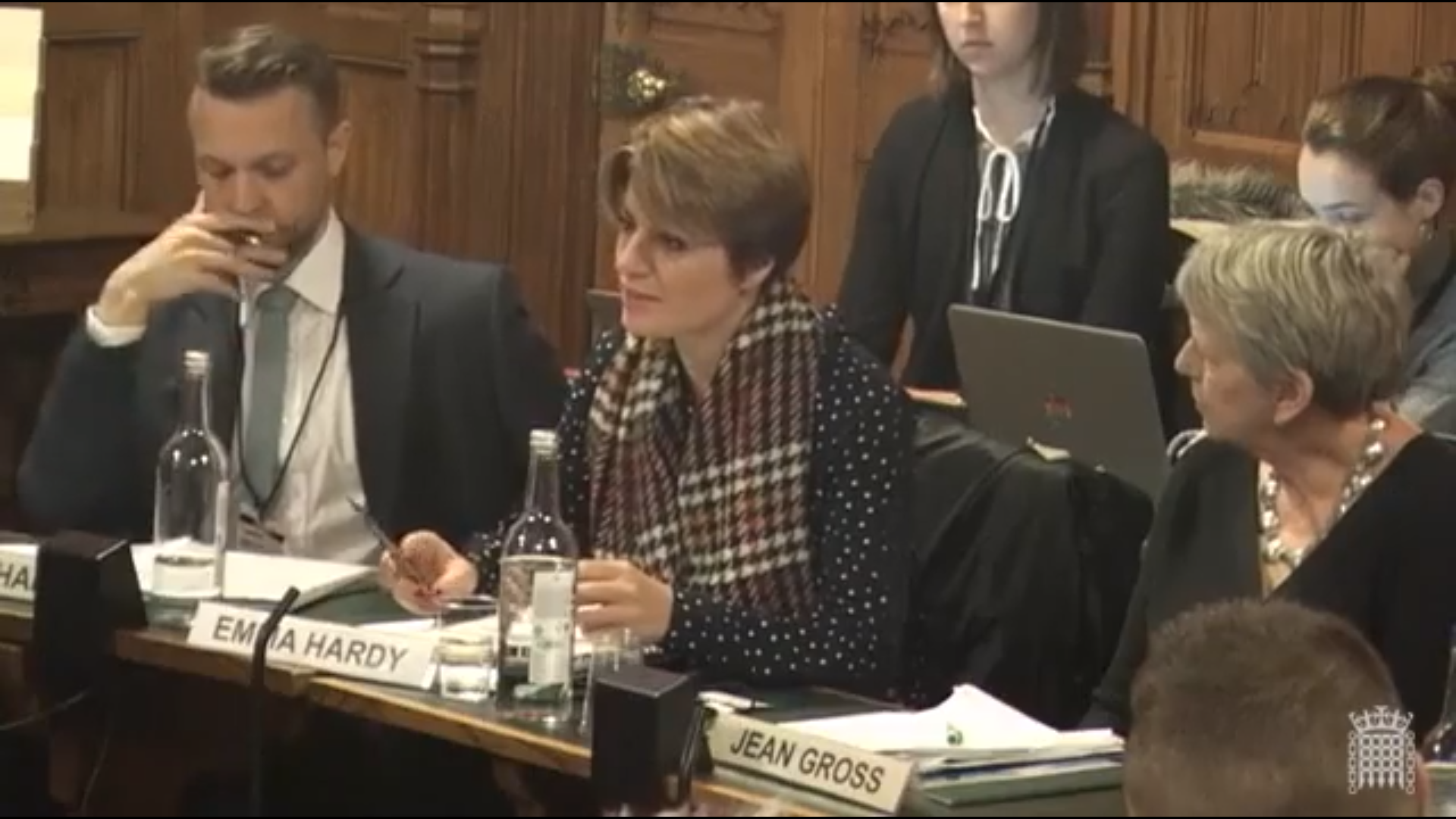The second part of a three part guest article series:
What is ‘community’? What does it look like? How has our perception of the term changed in the course of the coronavirus crisis?
by Alex Talbot, originally published at www.rethinkingpoverty.org.uk
Any meaningful engagement with the idea of ‘community’ requires interrogation beyond its woolly associations with cosy inclusion. Pulling apart the term requires critical bite. In Hull, we opened discussion of our topics (community, technology, education and climate) with provocations designed to challenge. In her opening provocation playwright Maureen Lennon brilliantly brought the bite needed to discuss community.
Maureen questioned the way the term is thrown around, highlighted its natural exclusivity, expanded its meaning beyond physical proximity in our networked world. She also looked directly at Hull, a city whose identity has been the subject of national interest, from post-industrial decline to city of culture, asking: what now?
Accompanied by actor and academic Michael Howcroft, Maureen then worked with the young people to facilitate discussion and help them create a 3-minute provocation, using theatre techniques to draw upon their own experience. Their pithy piece opens with a call for communities that are connected, kind and educated. Smaller conversational scenes consider hierarchies of power in the workplace, the vulnerability of the homeless (‘we have each other, but that guy had no one’), and the limitations of the ‘social’ in social media. The line ‘there’s nothing like meeting face to face’ now has added poignancy in the context of our socially distanced lives. The scene ends with a confrontation, sparked by pro-Brexit posters and the invocation of the abstract ‘foreigner’ apparently responsible for the unfair distribution of resources. More subtly, it draws attention both to the hope invested in ‘facts’ and solutions that have since been exposed as empty propaganda, and to the limited capacity for many to be politically engaged when immediate concerns of secure employment and supporting families consume your day to day. The two women in the argument share the same concerns, the ‘foreigner’ finally protesting: ‘we need help and support out here too.’
But what of community now? In a short space of time, the once radical concept of mutual aid has become a household term. At a time of crisis community building has frequently worked faster than official channels of power. At the same time we have also seen previously unimaginable moves from those official channels, with the government working to house the homeless, sending care packages to the vulnerable and calling upon a willing public to boost morale around and volunteer for the NHS.
And what of the ‘foreigner’ our Hull performance invokes? The loaded term inaccurately and destructively denies the complexity of our uncomfortable history and the benefits of immigration for our economy and society. In the last few weeks, we have seen the unimaginable sacrifices made by the BAME workforce that is the backbone of the NHS. Further, we have actively called on the ‘foreigner’, with some 150 Romanian field labourers arriving despite all to support fruit-picking on British farms and ‘help feed Britain amid a continuing recruitment crisis in the agricultural sector’. Arguably in a crisis we, as a nation, are happier to herald those who are supporting our needs, whatever their background and race, but this is not enough. We need long-term structural support for migrant workers and a real and accurate understanding of ‘nationality’ that will boldly challenge any return to a lazy and harmful ‘foreigner’ narrative.

What about ‘community’ where ‘face-to-face’ contact is no longer possible? We are all embracing the technology available to us (and yet it is not available to all of us). In a sense there is a renewed feeling of responsibility – to support communities, to hold the government to account, and to look at our national response in relation to others. But as Emily Maitlis so effectively pointed out, this virus is not a simplistic leveller. With existing inequalities exacerbated, the most vulnerable communities bear the brunt of the worst outcomes. Further, while we are all dealing with the same threat, we have also all become a potential threat to our neighbours. While some seek collaboration, fear and insecurity has also driven selfishness and hostility towards the ‘other’.


The experiences and questions raised in Hull foreshadow our current reality. How community is invoked through and beyond this crisis is a key question. Does the (frequently performative) solidarity engendered by the extremity of our present situation have a life beyond it? Making the connections between then and now will be important if we are to hope that it might lead to a more widespread call to tackle longer-term systemic inequalities.
Alex Talbott is Programme Manager for The Orwell Youth Prize


